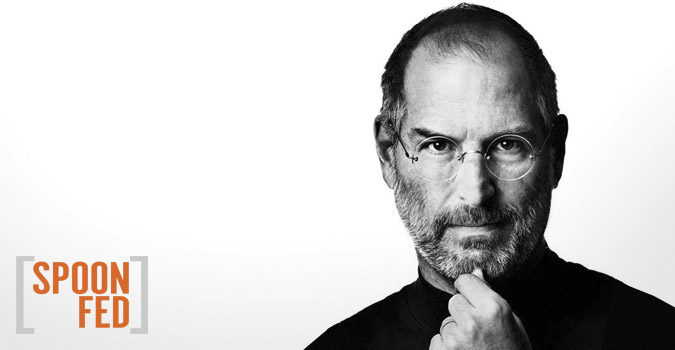Steve Jobs' Legacy as Apple CEO: Humans Before Specs
Sign up to receive The Snapshot, a free special dispatch from Laptop Mag, in your inbox.
You are now subscribed
Your newsletter sign-up was successful
This morning I turned on an Android phone and saw the brand flash next to the word Dual Core. Then the carrier’s brand popped up, then useless messages such as “Starting services” and “Preparing internal storage.” Steve Jobs would never let this happen. And that’s because his mission as CEO of Apple was to make technology more accessible, more personal. All the inner workings should remain hidden from view, because they don’t matter to the end user.
This philosophy drove Steve Jobs and Apple to become the highest-valued tech company in the world—ahead of Microsoft—but it’s a fallacy to believe that specs didn’t matter to him as CEO. It’s how Jobs leveraged technology to solve real-world problems that will forever distinguish him from hundreds of other leaders who just don’t get it.
Back in 2001 when Steve Jobs introduced the original iPod, he made a big deal about putting 1,000 songs in your pocket. The 5GB hard drive inside that revolutionary MP3 player was secondary. The real feat was that Jobs and his team managed to squeeze that much capacity into a device that weighed a very light (for the time) 6.5 ounces.
But that was only part of the story. The iPod boasted a unique Auto-Syncing capability via iTunes that no one else was able to match, as well as a unique scroll wheel that made using the product intuitive and fun. It wasn’t about file formats or bit rates. It was about changing the way people think about consuming music.
Fast forward to 2007 and you’ll see the ultimate marriage of hardware and software in the first iPhone. Yes, it had amazing technology under the hood, including a breakthrough capacitive display. But the reason Jobs wowed the crowd at Macworld back then was that this screen enabled multitouch gestures for zooming in and surfing the full web with a finger. For many, it didn’t matter that the iPhone lacked 3G speeds because it offered a completely different user experience.
The culmination of Jobs' humans-before-specs ethos is the iPad. Note that Jobs never used the word "tablet" to describe his baby during his keynote. He said he wanted to create “a new category of device.” I couldn’t have been more wrong when after the launch I said that the iPad wasn’t a netbook killer. And it was because consumers didn’t care about how much storage it had or whether it supported it Flash. As Jobs predicted, it was all about “holding the Internet in your hands” and being more “intimate” than a laptop.
Over the years, Jobs has sometimes put emotion and aesthetics too far ahead of specs and value. The original MacBook Air was thinner and lighter than any other 13-inch notebook on the market, but it didn’t last long enough on a charge and was underpowered. But then Apple reintroduced the product with something the competition didn’t have: instant on. Because the machine integrated flash memory right onto the motherboard, the notebook sprung to life when you lifted the lid. Jobs passionately described it as a “MacBook meeting an iPad.”
Sign up to receive The Snapshot, a free special dispatch from Laptop Mag, in your inbox.
And that brings us to another big reason for Jobs’ success. As CEO, he not only kept specs behind the scenes, but was brave enough to leave certain technologies behind altogether. The floppy. The optical drive. Mechanical hard drives. Physical keyboards. Flash. Jobs came under fire for some of these decisions. But as he told the audience during an interview at the D8 conference in 2010, you need to take risks to stay ahead of the competition.
“The way we’ve succeeded is to bet the right technological horse, to look at technologies that have a future. We try to pick things that are in their springs. And if you choose wisely, you can be quite successful.”
So, yes, staying on the cutting edge of technology enabled Steve Jobs to become the most successful CEO of all time. But it’s only because he was able to make us forget that we were using technology at all.
- iPhone 5: 11 Things You Need to Know
- Apple MacBook Air 13-inch: Best Ultraportable Ever?
- Top iPad 2 Tips for Work
Editor-in-chief Mark Spoonauer directs LAPTOP's online and print editorial content and has been covering mobile and wireless technology for over a decade. Each week Mark's column provides his insights and analysis of the biggest mobile trends and news. You can also follow him on Twitter.


